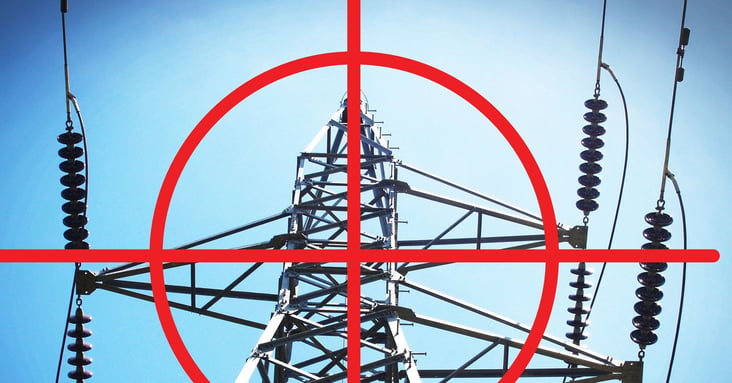
A funny thing happened on April 14. In a simple memo directing the Department of Energy to conduct a short-term study, the Trump Administration signaled that it was seeing advanced energy as a problem that needs to be solved. Whereas AEE has argued that homegrown advanced energy technologies like wind and solar, energy efficiency, demand response, energy storage, and advanced grid systems deserve a central role in the administration’s “America First” energy plan, the outline of DOE’s study portrays renewable energy, in particular, as a threat to electric system reliability, even “national security,” and it takes aim at federal, and even state, policies that have facilitated its growth. For the advanced energy industry, the memo was not just a study order, it was a shot across the bow.
In the memo to his chief of staff, Energy Secretary Rick Perry directed DOE to perform a “60-day study” of certain “critical issues central to protecting the long-term reliability of the electric grid.” In the memo, Perry expressed concerns about the “erosion of critical baseload resources” due to “regulatory burdens introduced by previous administrations that were designed to decrease coal-fired power generation” as well as “market-distorting effects of federal subsidies that boost one form of energy at the expense of others.” He directed DOE specifically to examine “the extent to which continued regulatory burdens, as well as mandates and tax and subsidy policies, are responsible for forcing the premature retirement of baseload power plants.”
To be clear, we believe that the reliability of the grid is sacrosanct – no policies should threaten the grid that all of us rely on every day. Still, to us at AEE, the assumption that advanced energy technologies are harming reliability was a bit mystifying, coming as it did from the former governor of Texas, the leading wind-power state in the country, and one that the Brattle Group, in a paper for AEE Institute, showcased for its experience maintaining reliable electric power service with a high penetration of variable renewable energy. Texas also has the most open and competitive electricity market in the country, ably managed by ERCOT, showing that renewable energy development need not undermine markets designed to provide affordable and reliable electric power.
It became a bit less mystifying when it became known that this study was to be put in the hands of appointees who came to DOE from the Institute for Energy Research, a Washington, D.C.-based think tank known for its attacks on renewable energy policy. Here is a sample, from IER’s blog in September: “Allowing wind energy to find its natural place in the power grid would require elimination of the PTC and all state-level renewable energy mandates.”
On April 28, AEE, AWEA, and SEIA sent a joint letter to Perry taking issue with the premises of his study order, noting that the growth of wind and solar power neither accounts for the challenges now facing coal-fired and nuclear power plants in the nation’s electricity markets nor represents any kind of threat to reliability.
“We note that these homegrown energy resources are proven technologies that help support grid reliability,” the industry associations wrote. “These energy resources have already been integrated smoothly into the electric power system in large and increasing amounts, as demonstrated in countless studies and, more importantly, in real-world experience across the U.S., including in Texas. Furthermore, we note that policies supporting the deployment of these technologies are not playing an important role in the decline of coal and nuclear plants. Numerous studies have conclusively demonstrated that low natural gas prices and stagnant load growth are the principal factors behind the retirements in coal and nuclear plants.”
The industry groups also called on DOE to “follow standard practice” and conduct the study in “an open and transparent manner,” noting that it is “customary” for agencies developing reports that provide policy recommendations to allow public comment on a draft, prior to the report being finalized. “Public input, including from energy market participants, grid operators, and regulators, would help ensure that any resulting recommendations from the study are based on the best available information,” wrote the industry associations.
Whether or not the Administration will heed our calls for public input is an open question. Nevertheless, it is crucial that market participants present DOE with the wealth of existing data and analysis that actually demonstrates that advanced energy is improving the state of our electricity grid.
We are under no illusion that the DOE study will be the end of matter. Rather, we believe that the administration may try to use the study to provide a blueprint for attacks on advanced energy policy wherever the administration can target them: in Congress, at FERC, and even in the 29 states that have enforceable renewable energy standards (the “mandates” referenced in the Perry memo). In the coming weeks, our groups will be submitting to DOE – whether asked for or not – factual information on how our electricity system operates today, with a growing mix of variable and flexible resources to provide greater, not lesser, reliability. And if the administration insists on ignoring this information and pursuing an anti-advanced energy policy agenda in the name of saving “baseload” plants that aren’t in fact needed to meet electricity needs, we’ll be getting ready for a fight.
In 2015, The Brattle Group found that “ongoing technological progress and ongoing learning about how to manage the operations of the electric system will likely allow the integration not only of the levels of variable renewable capacity now in places like Texas and Colorado but even significantly larger amounts in the future.” Click below to download the full paper:
